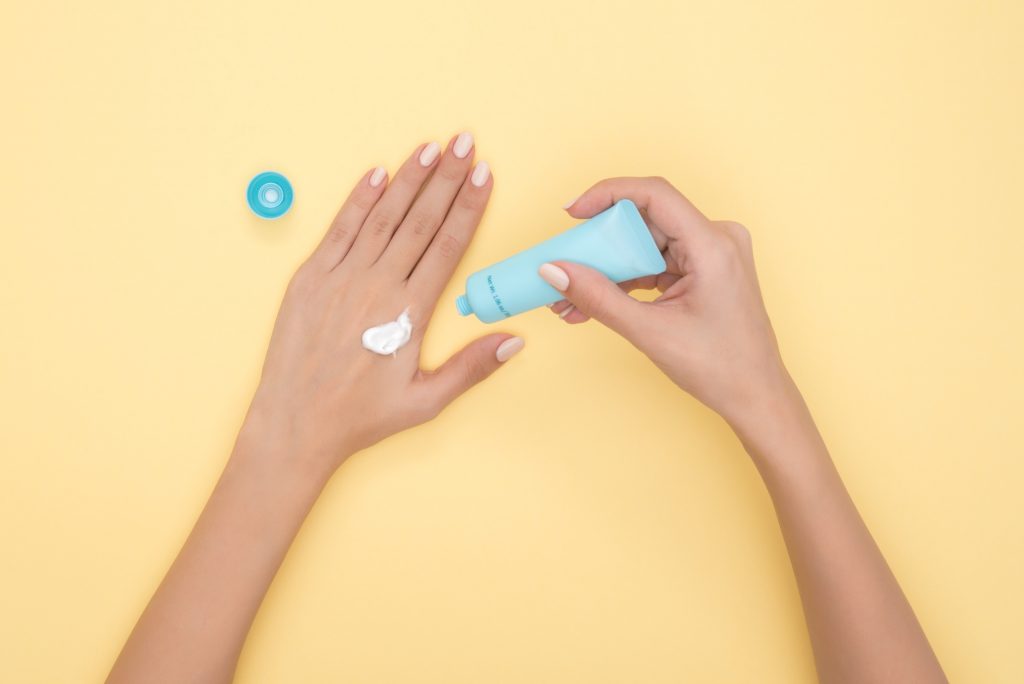
Vegetable glycerin is a product made from soybeans, coconuts, or palm oils. Vegetable glycerin is also called glycerol or glycerine. The clear liquid has no smell and tastes sweet on your tongue. It has a syrupy consistency, similar to normal pancake syrup.
The cosmetic industry uses vegetable glycerin extensively in the production of lotions, creams, and other cosmetics, keeping it stored in Flux Pumps or something similar. We are more interested in its health benefits, which can include healthier skin and strengthening your stomach.
What is Vegetable Glycerin?
Glycerin is a sugar alcohol which is produced from plants, petroleum, and animal by-products. The most common kind found in stores is petroleum based.
Vegetable glycerin is the type made from plants. It was first discovered when a combination of olive oil and lead monoxide was heated together. At first, it was just an interesting discovery, but in the late 1800s, it was used extensively in the production of dynamite and for other industrial purposes.
Making vegetable glycerin requires several key ingredients. First, you need a vegetable oil which is high in triglycerides. This includes oils like palm oil, soy, and coconut oil. Secondly, you need a strong alkali, like lye, to help the oils break apart. The combination of alkali and oil is heated under pressure, which causes the glycerin separate from the oils and mixes with water. The end result is the sweet, syrupy vegetable glycerin.
Common Uses for Vegetable Glycerin
The cosmetic, food, and pharmaceutical industries all use vegetable glycerin extensively. The glycerin is used in foods to help bind water and oil-based ingredients together. It also can be used for light sweetening and to make for moister food. It is used in the frozen food industry to discourage the development of ice crystals in frozen desserts.
The pharmaceutical industry has found many uses for vegetable glycerin. It can be found in suppositories to soften stools, cough remedies to moisten throats, and in anaesthetics. Even your toothpaste may contain vegetable glycerin to keep it from drying out.
It plays a role in moisturising soaps, lotions, and makeup. You might even find it in your favourite deodorant.
Potential Benefits Beyond the Common Uses
Vegetable glycerin has been reported to provide several health benefits. Currently, these benefits are based on the reports of users, with additional research being needed to validate the benefits.
The following benefits are the ones which have already been researched and proven effective.
Skin Moisturiser
Vegetable glycerin provides deep skin moisturising. It is used extensively as an ingredient in products from cosmetic companies but may have even more benefits when used alone
Research indicates using glycerin to moisturise your skin can improve softness and tightness. It can take as few as 10 days to start seeing good results from using vegetable glycerin creams as a moisturiser.
Improved Skin Health
Vegetable glycerin appears to provide a layer of protection for your skin. It can protect your skin from external irritants and may even help speed the healing of minor cuts and abrasions.
Glycerin can help alleviate inflamed skin, like sunburned skin, and will protect minor wounds from the elements. It even reduces the chances of microbes getting into wounds which could result in infections.
Winter sports enthusiasts may enjoy the protection vegetable glycerin can give to your exposed skin when you are out on a cold windy day.
May Boost Hydration and Athletic Performance
Vegetable glycerin is not a replacement for water or other sports drinks, but it can aid in hydrating your body.
You should always drink plenty of water before participating in vigorous activities, especially when it may be impossible to drink during sports, exercise, or work.
In one study, vegetable glycerin was shown to be more effective at rehydrating athletes than water or sports drinks.
Potential Side Effects
Some people do have mild allergic reactions when vegetable glycerin is applied to their skin. Always test new products to a small portion of your body and watching for allergic reactions, before extended use.
A few people have reported eating vegetable glycerin has given them headaches, nauseous, or even caused vomiting. Others have reported feeling dizzy or being excessively thirsty.
Keep in mind, glycerin is a sugar alcohol. Your body cannot process large amounts of it at one time. If you overdo it, you may get gas or diarrhoea.
As with any new supplement, experiment carefully and in small doses before taking higher quantities.
